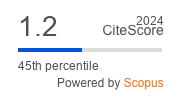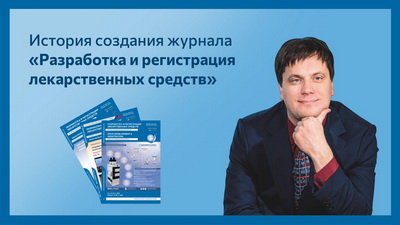Влияние дейтерия на свойства фармацевтических субстанций (обзор)
https://doi.org/10.33380/2305-2066-2020-9-2-24-32
Аннотация
Введение. Обзор посвящен влиянию изотопа водорода – дейтерия на биологическую активность фармацевтических субстанций.
Текст. Рассмотрены два аспекта влияния дейтерия на свойства активных фармацевтических ингредиентов и вспомогательных веществ. Первый связан с использованием дейтерированных субстанций – новых соединений или полученных замещением протия в известных протиевых аналогах. Кинетический изотопный эффект (КИЭ), выражающийся в снижении скорости биотрансформации в результате дейтерирования, позволяет прогнозировать быстрое развитие нового направления в разработке лекарственных средств. При идентичном терапевтическом эффекте дейтерированные аналоги обеспечивают улучшение фармакокинетических характеристик, снижение токсичности, блокировку эпимеризации оптически активных субстанций, изменение механизмов биотрансформации. Второй аспект влияния дейтерия отражает возрастание КИЭ в процессах с участием известных фармацевтических субстанций в водных растворах с соотношением дейтерий/протий (D/H) ниже природного. Впервые на диаграмме «доза – ответ» показана идентичность дейтерия эссенциальным микроэлементам, когда недостаток и избыток элемента снижает жизнеспособность организма. Улучшенные кинетические характеристики продемонстрированы для молекулярного и организменного уровня разной иерархической градации. В частности, они заключаются в возможности увеличения скорости растворения субстанций, влияния на процессы мутаротации углеводов и оптическую активность хиральных субстанций, возрастание накопления эссенциальных элементов в лекарственных растениях и других процессах.
Заключение. Полученные результаты позволяют прогнозировать механизмы влияния дейтерия на биохимические превращения фармацевтических субстанций в организме.
Об авторах
А. В. Сыроешкин117198, г. Москва, ул. Миклухо-Маклая, д. 6
Т. Е. Елизарова
117198, г. Москва, ул. Миклухо-Маклая, д. 6
Т. В. Плетенёва
Россия
Плетенёва Татьяна Вадимовна – профессор кафедры фармацевтической и токсикологической химии
117198, г. Москва, ул. Миклухо-Маклая, д. 6
Е. В. Успенская
117198, г. Москва, ул. Миклухо-Маклая, д. 6
О. В. Левицкая
117198, г. Москва, ул. Миклухо-Маклая, д. 6
И. А. Злацкий
117198, г. Москва, ул. Миклухо-Маклая, д. 6,
04114, Украина, Киев, ул. Вышгородская, д. 67
Т. В. Максимова
117198, г. Москва, ул. Миклухо-Маклая, д. 6
Список литературы
1. Syroeshkin A., Levitskaya O., Uspenskaya E., Pleteneva T. Deuterium Depleted Water as an Adjuvant in Treatment of Cancer. Systematic Reviews in Pharmacy. 2019; 10(1): 112–117. DOI: 10.5530/srp.2019.1.19.
2. Zoroddu M. A., Aaseth J., Crisponi G., Medici S., Peana M., Nurchi V. M. The essential metals for humans: A brief overview. Journal of Inorganic Biochemistry. 2019. DOI: 10.1016/j.jinorgbio.2019.03.013.
3. Atzrodt J., Derdau V., William J., Reid M. Deuterium- and tritiumlabelled compounds: applications in the life sciences. Angew Chem Int Ed. 2018; 57: 1758–1784.
4. Masson G. R., Jenkins M. L., Burke J. E. An overview of hydrogen deuterium exchange mass spectrometry (HDX-MS) in drug discovery. Expert Opinion on Drug Discovery. 2017; 12(10): 981–994. DOI: 10.1080/17460441.2017.1363734.
5. Pirali T., Serafini M., Cargnin S., Genazzani A. A. Applications of Deuterium in Medicinal Chemistry. Journal of Medicinal Chemistry. 2019; 62(11): 5276–5297. DOI: 10.1021/acs.jmedchem.8b01808.
6. Roger D. Tung. Deuterium medicinal chemistry comes of age. Future Med. Chem. 2016; 8(5): 491–494.
7. Syroeshkin A. V., Pleteneva T. V., Uspenskaya E. V., Zlatskiy I. A., Antipova N. A., Grebennikova T. V., Levitskaya O. V. D/H control of chemical kinetics in water solutions under low deuterium concentrations. Chemical Engineering Journal. 2019; 377: 119827. DOI: 10.1016/j.cej.2018.08.213.
8. Levitskaya O. V. Syroeshkin A. V., Pleteneva T. V. Arrhenius kinetics as a bioactivity assessment criterion for drug substances and excipients. Pharmaceutical Chemistry Journal. 2016; 49(11): 779–781.
9. Somlyai G., Javaheri B., Davari H., Gyöngyi Z., Somlyai I., Tamaddon K. A., Boros L. G. Pre-clinical and clinical data confirm the anticancer effect of deuterium depletion. Biomacromol J. 2016; 2(1): 1–7.
10. Krempels K., Somlyai I., Gyöngyi Z., Ember I., Balog K., Abonyi O., Somlyai G. A. Retrospective study of survival in breast cancer patients undergoing deuterium depletion in addition to conventional therapies. J Cancer Res Ther. 2013; 1(8): 194–200.
11. Zrelov O. Yu., Syroeshkin A. V., Uspenskaya E. V., Titorovich (Levitskaya) O. V. Effect of water isotopic composition on galactose mutarotation kinetics. Pharmaceutical Chemistry Journal. 2015; 49(6): 413–416.
12. Makarova M. P., Syroeshkin A. V., Maksimova T. V., Matveeva I. S., Pleteneva T. V. Features of the rapid determination of trace elements in medicinal and unofficial plants. Development and registration of medicines. 2019; 8(2): 93–97 (in Russ.).
13. Mullard A. Deuterated drugs draw heavier backing. Nat. Rev. Drug Discovery. 2016; 15: 219−221.
14. Thulasiram H. V., Phan R. M., Rivera S. B., Poulter C. D. Synthesis of deuterium-labeled derivatives of dimethylallyl diphosphate. J. Org. Chem. 2006; 71: 1739–1741.
15. Sattler A. Hydrogen/Deuterium (H/D) exchange catalysis in alkanes. ACS Catal. 2018; 8: 2296–2312.
16. Belleau B., Burba J., Pindell M., Reiffenstein J. Effect of deuterium substitution in sympathomimetic amines on adrenergic responses. Science. 1961; 133: 102–104.
17. Elison C., Rapoport H., Laursen R., Elliott H. W. Effect of deuteration of N–CH3 group on potency and enzymatic N-demethylation of morphine. Science. 1961; 134: 1078–1079.
18. DeWitt S. H., Maryanoff B. E. Deuterated Drug Molecules: Focus on FDA-Approved Deutetrabenazine. Biochemistry. 2018; 57: 472−473.
19. Claassen D. O., Carroll B., De Boer L. M., Wu E., Ayyagari R., Gandhi S., Stamler D. Indirect tolerability comparison of deutetrabenazine and tetrabenazine for Huntington disease. J. Clin. Mov. Disord. 2017; 4: 3–13.
20. Garay R. P., Grossberg G. T. AVP-786 for the treatment of agitation in dementia of the Alzheimer’s type. Expert Opin. Invest. Drugs. 2017; 26: 121–132.
21. Xie J. H., Gillooly K., Zhang Y., Yang X., Zupa-Fernandez A., Cheng L., Strnad J., Heimrich E., Zhou X., Chen J., Chaudhry C., Li S., Moslin R., Wrobleski S., Weinstein D., Burke J. 349 – BMS-986165 is a highly potent and selective allosteric inhibitor of TYK2, blocks IL-12, IL-23 and type I interferon signaling and provides for robust efficacy in preclinical models of systemic lupus erythematosus and inflammatory bowel disease. Gastroenterology. 2018; 154: S–1357.
22. Khan A. J., Misenko S. M., Thandoni A., Schiff D., Jhawar S. R., Bunting S. F., Haffty B. G. VX-984 is a selective inhibitor of nonhomologous end joining, with possible preferential activity in transformed cells. Oncotarget. 2018; 9: 25833–25841.
23. First-in-Human Study of the Safety, Tolerability, and Pharmacokinetic/ Pharmacodynamic Profile of VX-984 in Combination with Chemotherapy. ClinicalTrials.gov identifier: NCT02644278. Last update: June 5, 2018. Accessed on November 15, 2018.
24. Hearn B. R., Fontaine S. D., Pfaff S. J., Schneider E. L., Henise J., Ashley G. W., Santi D. V. Primary deuterium kinetic isotope effects prolong drug release and polymer biodegradation in a drug delivery system. J. Controlled Release. 2018; 278: 74–79.
25. Malmlöf T., Rylander D., Alken R. G., Schneider F., Svensson T. H., Cenci M. A., Schilström B. Deuterium substitutions in the L-DOPA molecule improve its anti-akinetic potency without increasing dyskinesias. Exp. Neurol. 2010; 225: 408–415.
26. Calinski D. M., Zhang H., Ludeman S., Dolan M. E., Hollenberg P. F. Hydroxylation and N-dechloroethylation of ifosfamide and deuterated ifosfamide by the human cytochrome p450s and their commonly occurring polymorphisms. Drug Metab.Dispos. 2015; 43: 1084–1090.
27. Bhadra P. B., Hassanzadeh A., Arsic B., Allison D. G., Morris G. A., Barber J. Enhancement of the properties of a drug by monodeuteriation: reduction of acid-catalysed formation of a gut-motilide enol ether from 8-deuterio-erythromycin B. Org. Biomol. Chem. 2016; 14: 6289–6296.
28. Shao L., Abolin C., Hewitt M. C., Koch P., Varney M. Derivatives of tramadol for increased duration of effect. Bioorg. Med. Chem. Lett. 2006; 16: 691–694.
29. Smith S. W. Chiral toxicology: It’s the same thing...only different. Toxicol. Sci. 2009; 110: 4–30.
30. Csuk R. Biocatalysis in the Pharma and Biotech Industries. CRC Press: Boca Raton, FL. 2007; 699–716.
31. Hutt A.J., Valentova J. The chiral switch: The development of single enantiomer drugs from racemates. Acta Fac. Pharm. Univ. Comenianae. 2003; 50: 7–23.
32. Ali I. Homochiral drug design and development by racemization. Comb. Chem. High Throughput Screening. 2007; 10: 326–335.
33. Maltais F., Jung Y. C., Chen M., Tanoury J., Perni R. B., Mani N., Laitinen L., Huang H., Liao S., Gao H., Tsao H., Block E., Ma C., Shawgo R. S., Town C., Brummel C. L., Howe D., Pazhanisamy S., Raybuck S., Namchuk M., Bennani Y. L. In vitro and in vivo isotope effects with hepatitis C protease inhibitors: enhanced plasma exposure of deuterated telaprevir versus telaprevir in rats. J. Med. Chem. 2009; 52: 7993−8001.
34. Mori T., Ito T., Liu S., Ando H., Sakamoto S., Yamaguchi Y., Tokunaga E., Shibata N., Handa H., Hakoshima T. Structural basis of thalidomide enantiomer binding to cereblon. Sci. Rep. 2018; 8: 1294–1307.
35. Yamamoto T., Tokunaga E., Nakamura S., Shibata N., Toru T. Synthesis and configurational stability of (S)- and (R)-deuteriothalidomides. Chem. Pharm. Bull. 2010; 58: 110–112.
36. Jacques V., Czarnik A. W., Judge T. M., Van der Ploeg L. H., DeWitt S. H. Differentiation of antiinflammatory and antitumorigenic properties of stabilized enantiomers of thalidomide analogs. Proc. Natl. Acad. Sci. U.S.A. 2015; 112: E1471–E1479.
37. Basov A., Fedulova L., Baryshev M., Dzhimak S. Deuteriumdepleted water influence on the isotope 2 H/1 H regulation in body and individual adaptation. Nutrients. 2019; 11: 1903. DOI: 10.3390/nu11081903.
38. Zlatskiy I. A., Zlatska A. V., Antipova N. V., Syroeshkin A. V. Effect of deuterium on the morpho-functional characteristics of normal and cancer cells in vitro. Trace Elements and Electrolytes. 2018; 35: 211–214. DOI: 10.5414/TEX0155410.
39. Goncharuk V. V., Syroeshkin A. V., Pleteneva T. V., Uspenskaya E. V., Levitskaya O. V., Tverdislov V. A. On the possibility of chiral structuredensity submillimeter inhomogeneities existing in water. Journal of Water Chemistry and Technology. 2017; 39(6): 319–324. DOI: 10.3103/s1063455x17060029.
40. Goncharuk V. V., Pleteneva T. V., Grebennikova T. V., Syroeshkin A. V., Uspenskaya E. V., Antipova, N. V., Zlatskiy I. A. Determination of Biological Activity of Water Having a Different Isotope Ratio of Protium and Deuterium. Journal of Water Chemistry and Technology. 2018; 40(1): 27–34. DOI: 10.3103/s1063455x18010058.
41. Uspenskaya E. V., Anfimova E. V., Syroeshkin A. V., Pleteneva T. V. Kinetics of pharmaceutical substance solubility in water with different hydrogen isotopes content. Indian J Pharm Sci. 2018; 80: 318–24.
42. Maret W. The Metals in the biological periodic system of the elements: concepts and conjectures. International Journal of Molecular Sciences. 2016; 17(1): 66. DOI: 10.3390/ijms17010066.
43. Halenova T., Zlatskiy I., Syroeshkin A., Maximova T., Pleteneva T. Deuterium-Depleted Water as Adjuvant Therapeutic Agent for Treatment of Diet-Induced Obesity in Rats. Molecules. 2020; 25(1): 23. DOI: 10.3390/molecules25010023.
44. Makarova M., Syroeshkin A., Maksimova T., Pleteneva T., Zlatskiy I., Antipova N., Skripnikov A., Dzhavakhyan M. D/H modification of plant peptides and microelements metabolome. FEBS Open Bio. 2019; 9: 287–288. DOI: 10.1002/2211-5463.12675.
Рецензия
Для цитирования:
Сыроешкин А.В., Елизарова Т.Е., Плетенёва Т.В., Успенская Е.В., Левицкая О.В., Злацкий И.А., Максимова Т.В. Влияние дейтерия на свойства фармацевтических субстанций (обзор). Разработка и регистрация лекарственных средств. 2020;9(2):24-32. https://doi.org/10.33380/2305-2066-2020-9-2-24-32
For citation:
Syroeshkin A.V., Elizarova T.E., Pleteneva T.V., Uspenskaya E.V., Levitskaya O.V., Zlatskiy I.A., Maksimova T.V. The Influence of Deuterium on the Properties of Pharmaceutical Substances (Review). Drug development & registration. 2020;9(2):24-32. (In Russ.) https://doi.org/10.33380/2305-2066-2020-9-2-24-32









































